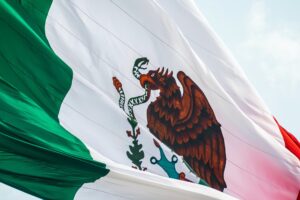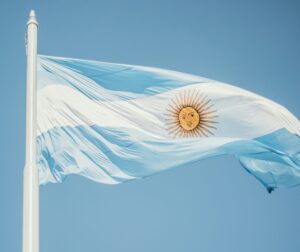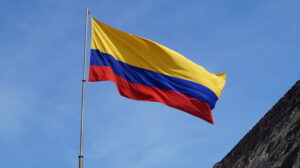The following is based on a communication written by the UN Special Rapporteur on Human Rights Defenders and other UN experts to the Government of Georgia on 10 May 2024. The communication remained confidential for 60 days before being made public, giving the Government time to reply. Regrettably, the Government did not reply within this timeframe. If a reply is received it will be posted on the UN Special Procedures communications database.
Since the communication was sent, the bill was passed by Parliament on May 14, vetoed by the President, and then signed into law by Georgia’s Parliamentary Speaker on June 3 after the Parliament voted to override the veto on May 28. This decision was made despite HRDs’ opposition and widespread protests. The President is now challenging the law in the Constitutional Court.
This is a shorter version of the original communication.
BACKGROUND
Topic: the re-introduction in the Parliament of Georgia of the so-called ‘Foreign Agents Law’, the draft law ‘On transparency of foreign influence’, and the suppression of the protests against the draft law.
ALLEGATIONS
1. Reintroduction of the draft law ‘On transparency of foreign influence’
On 3 April 2024, the Georgian Dream party introduced the draft law “On transparency of foreign influence” (N 07-3/433/10), hereinafter: ‘draft law’. This legislative initiative appears to be similar to the draft law which was on the Parliament’s agenda in February last year (N 07-3/293/10) and was then withdrawn from consideration several weeks after it was introduced, following weeks of protest in Georgia.
On 15 April 2024, Georgian Parliament’s Legal Committee endorsed the draft law in its first reading.
The new draft law appears to be to be largely identical to the 2023 proposal, except the new draft uses the term “an organization advocating the interests of a foreign power” rather than “an agent of foreign influence” in its definitions. The draft law is stated to ‘provide transparency of foreign influence in order to regulate the subjects of the foreign power and provide their registration as an organization carrying out the interests of a foreign power’ (article 1).
Under the provisions of the draft law, non-commercial organizations and media outlets receiving over 20% of their budget from a ‘foreign power’ is required to register as an “organization advocating the interests of a foreign power” with the Public Registry Agency of the Ministry of Justice and annually submit financial declarations that disclose information about the source, amount, and purpose of any funds and other material benefits received and spent.
According to the draft law, ‘foreign power’ is defined as entities that are part of the government system of a foreign state, natural persons who are not citizens of Georgia, legal entities that are not established based on Georgian law, and entities established under the law of a foreign state and/or international law (article 3 of the draft law).
“Organization advocating the interests of a foreign power” is any entity that during a year receives more than 20% of their income from a “foreign power” (article 2(1) of the draft law).
If adopted, this would set a separate legal regime for CSOs and media outlets falling under the scope of the draft law, subjecting them to additional and cumbersome reporting requirements, giving vaguely defined and broad inspection and monitoring powers to the authorities to identify such entities, and introducing heavy administrative fines (amounting to up to 25000 GEL, approximately 8700 EUR) in case of non-compliance. CSOs and media outlets falling under the scope of the law would be subject to inspection every 6 months by the Ministry of Justice, which could include forcing them to disclose internal communications and confidential sources.
During her country visit to Georgia, the Special Rapporteur on the situation of human rights defenders was informed about the impact of the previous draft law, which was raised repeatedly by human rights defenders. They described the increased insecurity they have felt since its attempted introduction, the damage it has done to their working relationships with municipal authorities and their standing in society, and the fear that the legislative project will be revived in one form or another. Its introduction provided encouragement to far-right groups, whose own narrative of ‘foreign agents’ and ‘internal enemies’ was legitimised by the strong backing of the legislation by the government, ruling party and parliamentarians[1].
During her visit, the Special Rapporteur was told by the government that the foreign agent law would not be revived[2].
a. Freedom to seek, receive and use funding
International human rights law and standards amply recognize the freedom to access resources as part of the right to freedom of association. Article 22 of the ICCPR protects all activities of an association, including activities directed at accessing resources or funding, subject to restrictions consistent with ICCPR article 22(2). This includes the freedom to seek, receive and use resources from natural and legal persons, whether domestic, foreign or international, without prior authorization or other undue impediments – including from individuals, associations, foundations and other civil society organizations, foreign Governments and aid agencies, the private sector, the United Nations and other entities. Consequently, undue limitations on associations’ freedom to access funding violate states’ obligations under article 22 of the ICCPR[3].
In resolution 22/6, the Human Rights Council has called on States to ensure that reporting requirements placed on individuals, groups and organs of society should not inhibit the functional autonomy […] and that no law should criminalize or delegitimize activities in defence of human rights on account of the origin of funding.
The Human Rights Committee has consistently expressed concern over foreign funding restrictions as an impediment to fully realizing the right to freedom of association. For example, after reviewing Egyptian legislation which required non-governmental organizations (NGOs) receiving foreign funding to register with the government, the Committee stated that: ‘The State Party should review its legislation and practice in order to enable non-governmental organizations to discharge their functions without impediments, which are inconsistent with the provisions of article 22 of the Covenant, such as prior authorization, funding controls, and administrative dissolution’[4].
Other international human rights instruments also recognize associations’ right to access resources. For instance, the Declaration on the Right and Responsibility of Individuals, Groups and Organs of Society to Promote and Protect Universally Recognized Human Rights and Fundamental Freedoms (the Declaration on Human Rights Defenders) has recognized in article 13 that everyone has a right, individually and in association with others, to solicit, receive and utilize resources for promoting and protecting human rights through peaceful means[5].
Regional monitoring bodies have also amply recognized that freedom of association protects the right of associations to seek, receive and use financial resources. In the European context, the Committee of Ministers of the Council of Europe has repeatedly affirmed that “NGOs should be free to solicit and receive funding – cash or in-kind donations – not only from public bodies in their own State but also from institutional or individual donors, another State or multilateral agencies”[6].
States must ensure that any restriction on civil society organizations’ right to access funding and resources complies with international human rights requirements of legality, legitimate aim, necessity and proportionality in a democratic society, as set out in article 22(2) of the International Covenant on Civil and Political Rights.
b. Legality
Restrictions must be “provided by law”. A restriction does not meet this requirement simply because it is formally enacted as a national law. The legality requirement also refers to the quality of the law. The laws in question must be accessible and sufficiently precise to allow members of the society to decide how to regulate their conduct (foreseeability) and may not confer unfettered or sweeping discretion on those who enforce them.
Laws that restrict foreign funding, including “foreign agent laws”, generally fail to establish with sufficient degree of foreseeability what funding and what sources of funding would qualify as “foreign funding” for the purposes of registration as a “foreign agent” and allow for and overbroad and unpredictable interpretation of the law in practice.
c. Legitimacy
To be lawful any restriction must protect only those interests enumerated in article 22(2): national security or public safety, public order (ordre public), the protection of public health or morals or the protection of the rights and freedoms of others. Restrictions to foreign funding based on the protection of State sovereignty, which is not listed as a legitimate ground for restrictions under the Covenant, as a result fail to meet this requirement[7].
d. Necessity and proportionality
To meet the condition of necessity, authorities must demonstrate that the restriction can truly be effective in pursuing the legitimate aim and be the least intrusive means among those which might achieve the desired objective. The State must also prove that the measure is necessary to avert a real and not a hypothetical threat to one of the grounds for limitation, such as national security or public order[8].
e. Non-discrimination
States have the responsibility under international human rights law to respect, protect and facilitate the right to freedom to access resources by civil society organizations. States’ obligations must be implemented in a non-discriminatory manner, with particular attention to the rights and needs of individuals from groups or populations at higher risk of facing discrimination and marginalization. Setting up two different registration and reporting regimes for CSOs based on their sources of funding would appear to contravene the principle of non-discrimination.
2. Suppression of protests against the draft law
On 15 April 2024, widespread peaceful protests erupted in Tbilisi with demonstrators waving Georgian and EU flags. The police used force to disperse the protesters, resulting in 14 detentions for alleged public order offences and a reported police injury.
On 16 April, riot police dispersed demonstrators and cleared them from around part of the parliament as lawmakers debated the bill. According to reports, around 10,000 protesters gathered outside parliament, to denounce the draft law. Officers ordered protesters to disperse and used pepper spray while clashes between police and some demonstrators erupted.
Additionally, the Speaker of the Parliament Shalva Papuashvili issued a statement barring online media outlets from entering parliament to cover the committee hearings. Subsequently, representatives of civil society have also reportedly been excluded from the consultations on the draft law.
Violent crackdown by security forces and riot police on protesters against the proposed draft law continued and further escalated on 29 and 30 April 2024. Riot police used water cannons, teargas and stun grenades to disperse protesters. Police reportedly detained 63 protesters in Tbilisi, and six officers were injured.
According to reports, several human rights defenders monitoring the protests have been assaulted while others received threatening phone messages.
CONCERNS
In the communication, we express our serious concerns about the re-introduction of the draft law on foreign influence. Labelling journalists, media outlets, activists, human rights defenders and associations as “foreign agents”, or “an organization advocating the interests of a foreign power” under vague and overbroad concepts such as “foreign influence”, could further obstruct and stigmatize the legitimate work of human rights defenders, activists and civil society organizations, with a serious damaging effect on the right to freedom of association in Georgia. The broad scope of the label of “foreign agent” could suggest that certain activists or associations are under foreign control, disregarding and undermining the efforts for the promotion and protection of human rights, the rule of law, and human development for the benefit of Georgian society and democratic institutions, resulting in a particularly acute chilling effect of such a designation of human rights defenders, activists and civil society organizations.
We also express concerns that the provisions of the draft law, if adopted in its current format, would contravene Georgia’s obligations under the ICCPR and other relevant international human rights instruments, including those undertaken within the framework of the Council of Europe.
Finally, we express strong concerns about the excessive use of force and violence by security forces and riot police against peaceful protesters and about the lack of genuine, inclusive and meaningful consultations with civil society.
[1] A/HRC/55/50/Add.2 para 19
[2] Ibid para 20
[3] General principles and guidelines on ensuring the right of civil society organizations to have access to resources – A/HCR/53/38/Add.4, para 11
[4] U.N. Human Rights Committee, Concluding Observations of the Human Rights Committee: Egypt, at para. 21, U.N. Doc. CCPR/CO/76/EGY (November 28 2002), http://www.unhchr.ch/tbs/doc.nsf/(Symbol)/CCPR.CO.76.EGY.En?Opendocument
[5] Ibid para 12
[6] Council of Europe Committee of Ministers recommendation CM/Rec(2007)14, and see also recommendation CM/Rec(2018)11; OSCE Office for Democratic Institutions and Human Rights and the European Commission for Democracy through Law (Venice Commission), Joint Guidelines on Freedom of Association, principle 7.
[7] A/HRC/23/39, paras 30-34
[8] A/HRC/23/39, para 23



